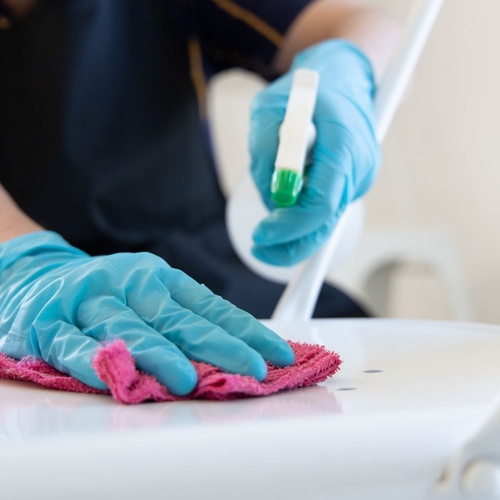
Frequencies and Work Rhythms in Cleaning
Better Understanding for Better Analysis
Frequency and work rhythm are two essential concepts in professional cleaning services to define the quality of service delivery. These parameters not only determine the expected service quality, but also influence the balance between cost and efficiency.
Yet, they are often misunderstood or incorrectly applied, which can lead to significant differences between providers' proposals — and ultimately to unrealistic expectations or unsatisfactory results.
Heureusement, grâce à l’outil CASH de la QUALIPSO suiteFortunately, the CASH tool from the QUALIPSO Suite now makes it possible to objectively compare quotes, identify discrepancies, and analyze proposals in order to select the solution that best meets your clients’ needs.
Frequencies vs. Paces: What Are the Differences?
- 1. Frequency Frequency indicates how many times a task is performed over a year. Depending on your company's number of working days, daily tasks from Monday to Friday typically mean 251 times per year (365 days minus 10 public holidays and weekends).
Common Frequencies:
|
251 |
Every working day (Mon-Fri) |
|
502 |
Twice a working day (Mon-Fri) |
|
52 |
Once a week |
|
24 |
Twice a month |
|
12 |
Once a month |
|
4 |
Once every 3 months |
- 2. Pace Pace expresses the working speed, and thus indirectly the time dedicated to a specific task or cleaning a given area. It is a measure of productivity, depending on: • the room type (restroom, office, corridor, etc.), • floor type, • clutter rate, wear, complexity of cleaning tasks, • equipment used, etc. The company defines its working pace for each area accordingly. It is usually expressed in sqm/hour, but can also be in rooms/hour, linear meters/hour, etc. Pace can vary significantly: • 800 sqm/h for a corridor, • 85–90 sqm/h for a restroom.
Revealing Discrepancies
During a tender, price differences between providers often relate to significant variations in declared paces. Some providers propose very high (sometimes unrealistic) paces to remain competitive, at the expense of real service quality. Others propose lower paces, which may increase costs.
Therefore, it is crucial for the client to compare offers not only on prices but also on the technical consistency of the proposed means.
How QUALIPSO Tools Help You Compare and Analyse
With our CASH module integrated into the QUALIPSO Suite, you can:
Analyse Proposed Paces
When importing providers’ offers, the module automatically compares the proposed paces and service prices for each item.
Visualise Discrepancies by Area or Task
Interactive dashboards help you quickly identify under-resourced zones, allowing you to ask the right questions before making a decision.
Comparer plusieurs offres en un seul clic
Our tool compares item by item the proposals of different providers, all centralised in a single table for smooth and clear analysis.
Fully understanding the difference between pace and frequency is essential for efficiently managing a cleaning contract. Thanks to the QUALIPSO Suite tools, you move from approximate management to precise, objective analysis of your services.
You gain in transparency, professionalism, and performance, while ensuring a level of quality adapted to your occupants’ needs.
